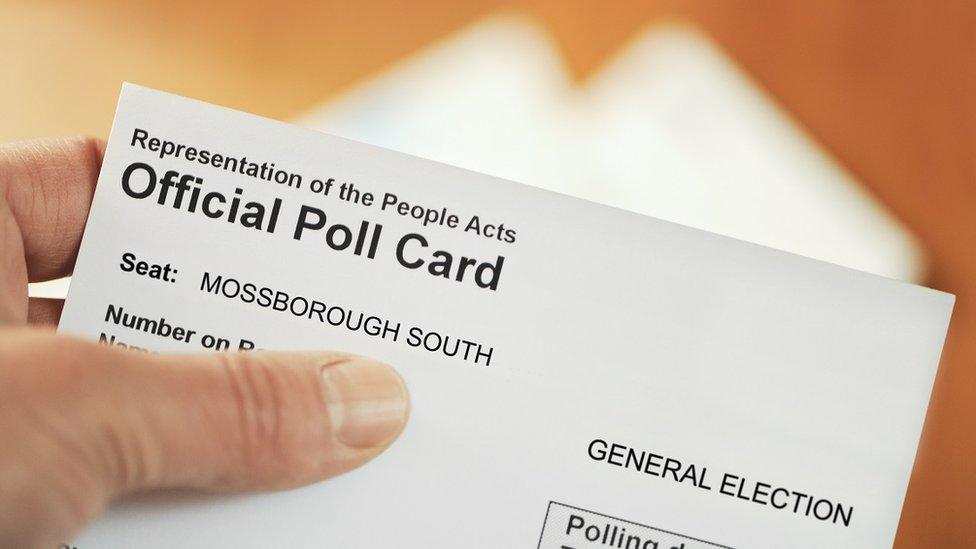Voter ID cards: East of England gears up for local elections
- Published
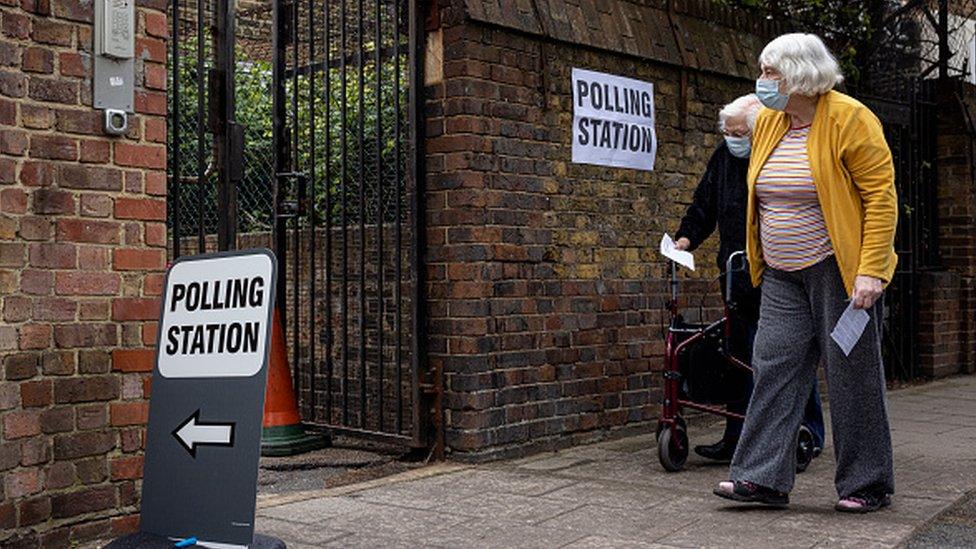
The government says voter ID checks will prevent fraud, but critics argue the move could depress turnout
'Securing democracy' or 'disenfranchising' voters? With the first elections requiring electors to show a form of identity card fast approaching, BBC Politics East has been looking at the issue.
Voters in the local elections in England on 4 May must show photo ID at polling stations in order to vote.
Maureen Ward, who lives near St Neots in Cambridgeshire, said she felt "disenfranchised" because she has not got a passport or driving licence.
The government said these measures were to ensure "democracy remains secure".
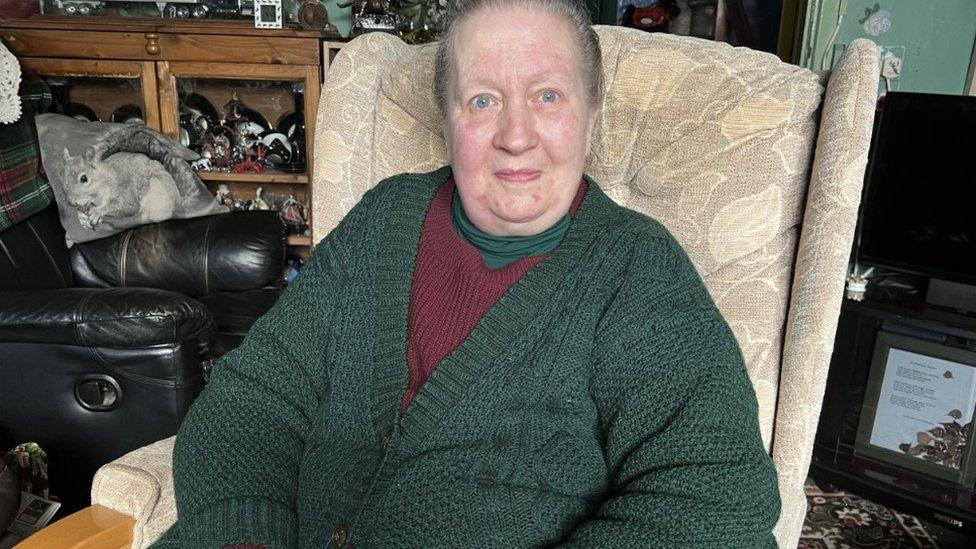
Maureen Ward, who lives near St Neots in Cambridgeshire, said she felt cheated of her vote
Mandatory voter ID for elections was backed by MPs last year.
There are about 20 types of acceptable ID that can be used, external including driver's licences, passports and photographic travel passes.
Those without an appropriate ID should apply for a Voter Authority Certificate (VAC) from their council by 25 April.
The government has estimated that between 2% and 4% of eligible voters need a VAC.
Ms Ward told the BBC: "Mrs Pankhurst fought long and hard to get the vote for women and now, because I don't drive and never wanted to go abroad, I suddenly find I am maybe cheated of my vote.
"I didn't even take up the bus pass because by the time I was looking at it, the buses were disappearing faster that I could catch them."
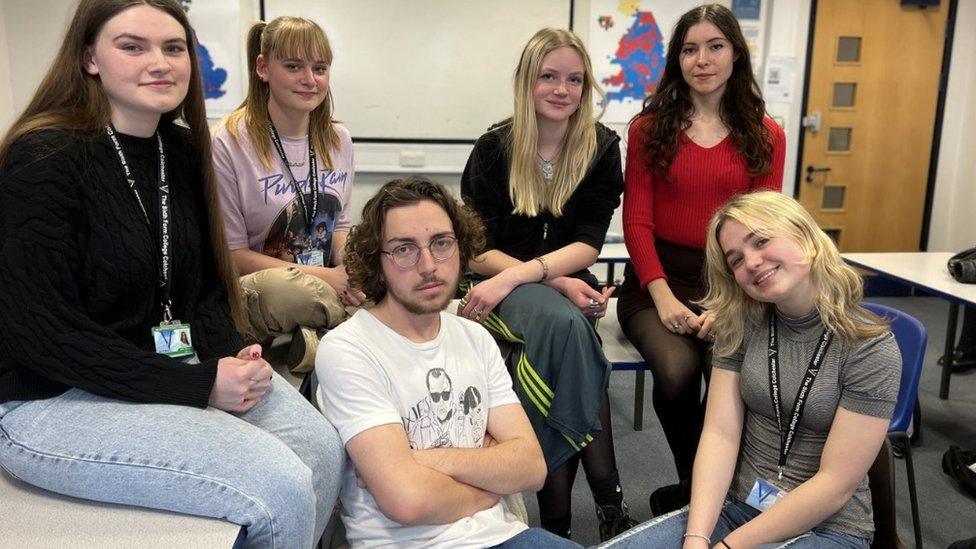
A group of A-Level politics students at the Sixth Form College in Colchester, Essex, all had voter ID to allow them to vote in May
So far, less than 3% of the expected voters who need a VAC have applied for it according to the councils the BBC has spoken too.
In Colchester, there have been just 100 applications.
Pam Donnelly, Colchester Borough Council's returning officer, said the council was fully prepared for VACs and the introduction of Voter ID at polling stations.
"The processing of VAC certificates are being turned round within 24 hours," she said.
"However, I have absolutely no doubt that on the day there will be people who haven't seen any of the information and who turn up wishing to cast their vote and not having the appropriate ID."
An Electoral Commission survey found 61% of people thought showing photographic ID at polling stations would make elections more secure.
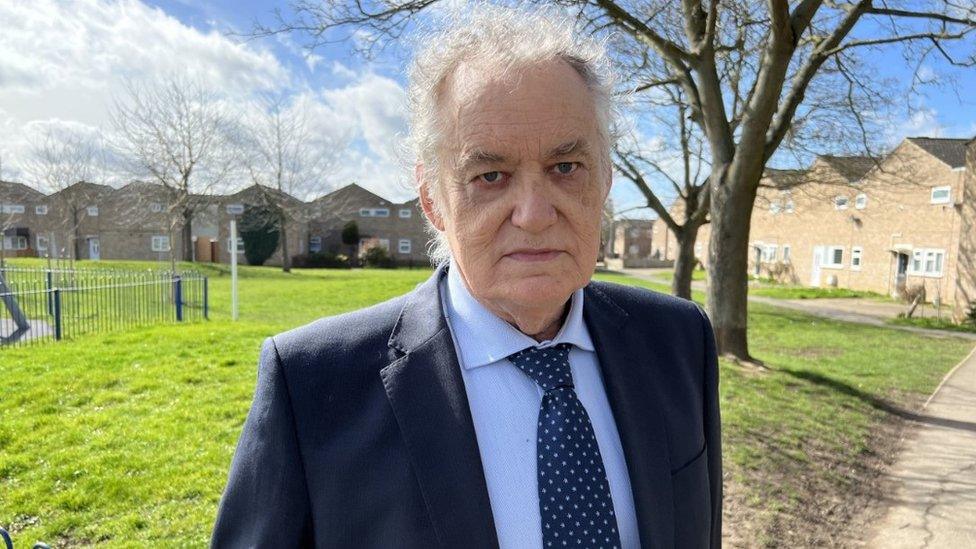
Neil Coughlan, of Witham in Essex, said Voter ID was not needed
Neil Coughlan, of Witham in Essex, crowdfunded to raise money to take legal action against the government over the use of voter ID that was tried at Braintree District Council's elections in 2019, but in June 2020 three senior judges dismissed his case.
"The public perceive, because the government are doing this [Voter ID] that there must be this fraud, but that is not true. There is no fraud," he said.
"The ballot is secure and there was no need to do this except if you want to make sure certain people find it harder to vote."
'Over the top'
The BBC talked to group of A-Level politics students at The Sixth Form College in Colchester and found that all of them had got their Voter ID to allow them to take part, but they disagreed with the policy.
One of them, Prudence Mather, said: "The quote from the Electoral Reform Society sums it up best when it says 'it's a sledge hammer to crack a nut'.
"I think it's completely over the top."
A government spokesperson said: "We cannot be complacent when it comes to ensuring our democracy remains secure.
"The vast majority of people already have a form of acceptable identification. However, we are actively supporting the very small proportion of people who may not, and expect even more people to apply for a free Voter Authority Certificate as we near the date of elections."
The deadline to apply for a VAC in time for this year's local elections is 17:00 GMT on Tuesday, 25 April.
You can see more on this story on Politics East on BBC One on Sunday, 26 March at 10:00 GMT, with it also available on BBC iPlayer afterwards.

Find BBC News: East of England on Facebook, external, Instagram, external and Twitter, external. If you have a story suggestion please email eastofenglandnews@bbc.co.uk, external
- Published22 February 2023
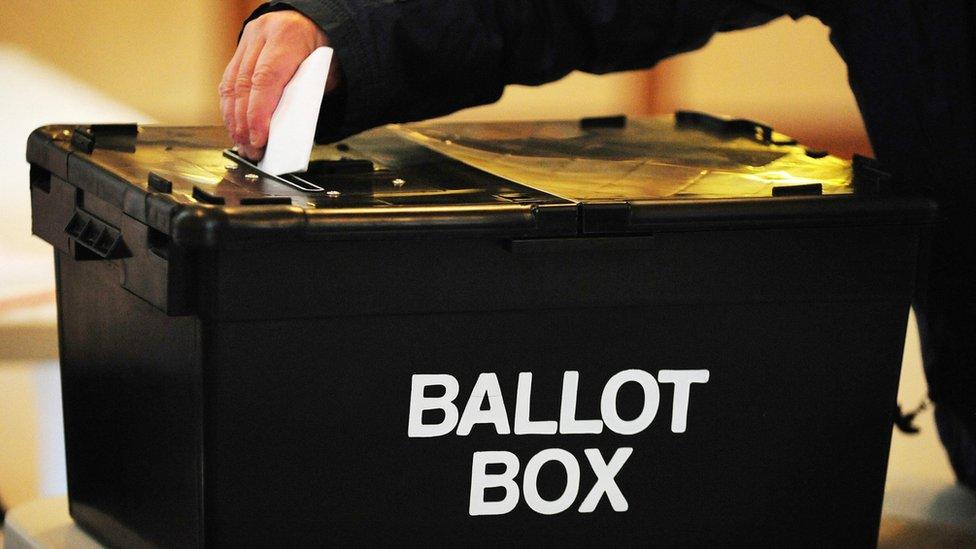
- Published5 June 2020
